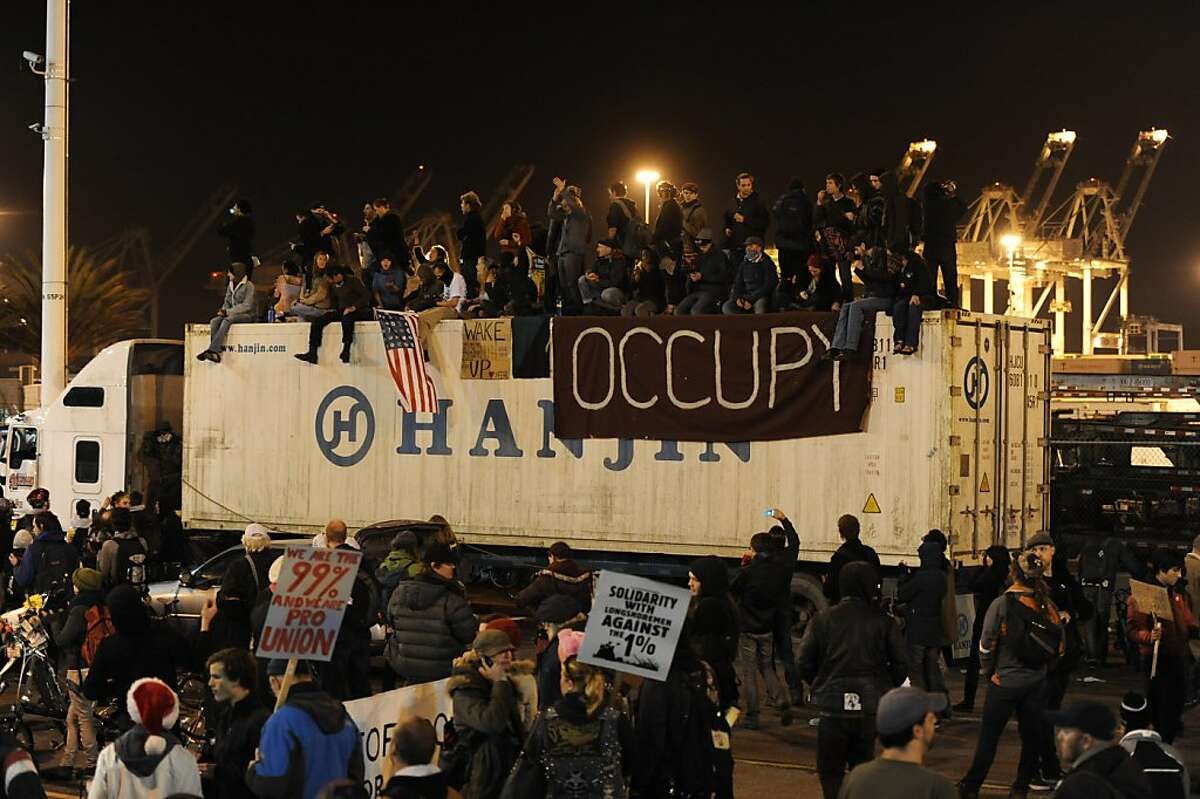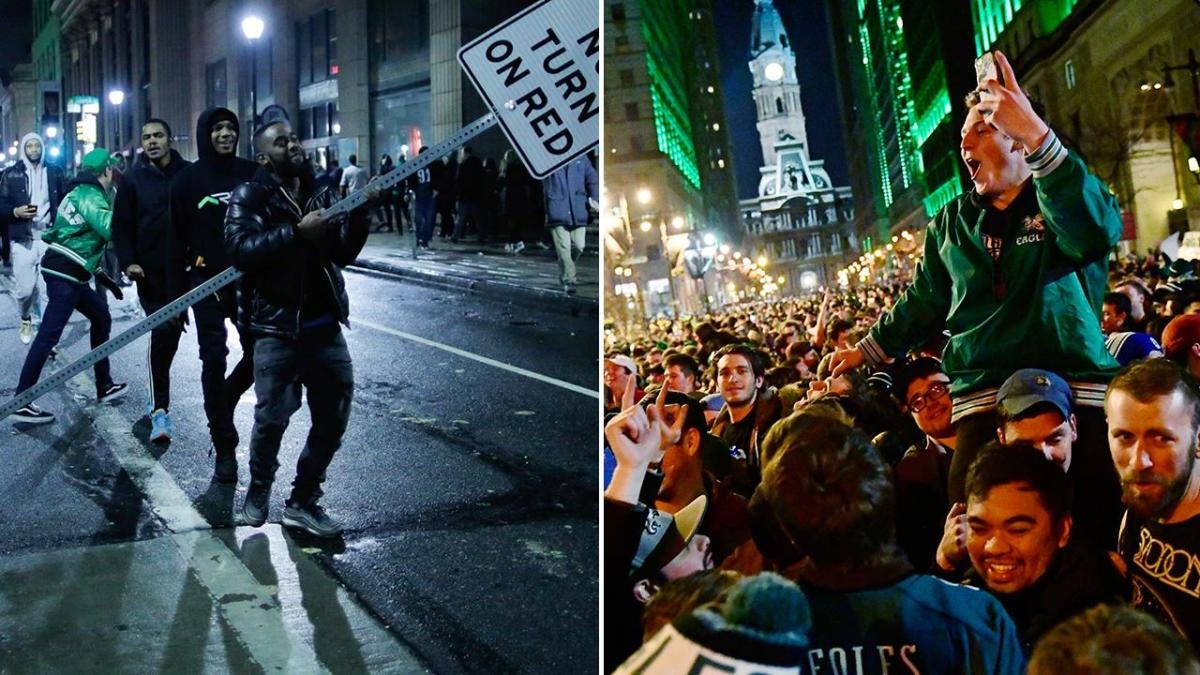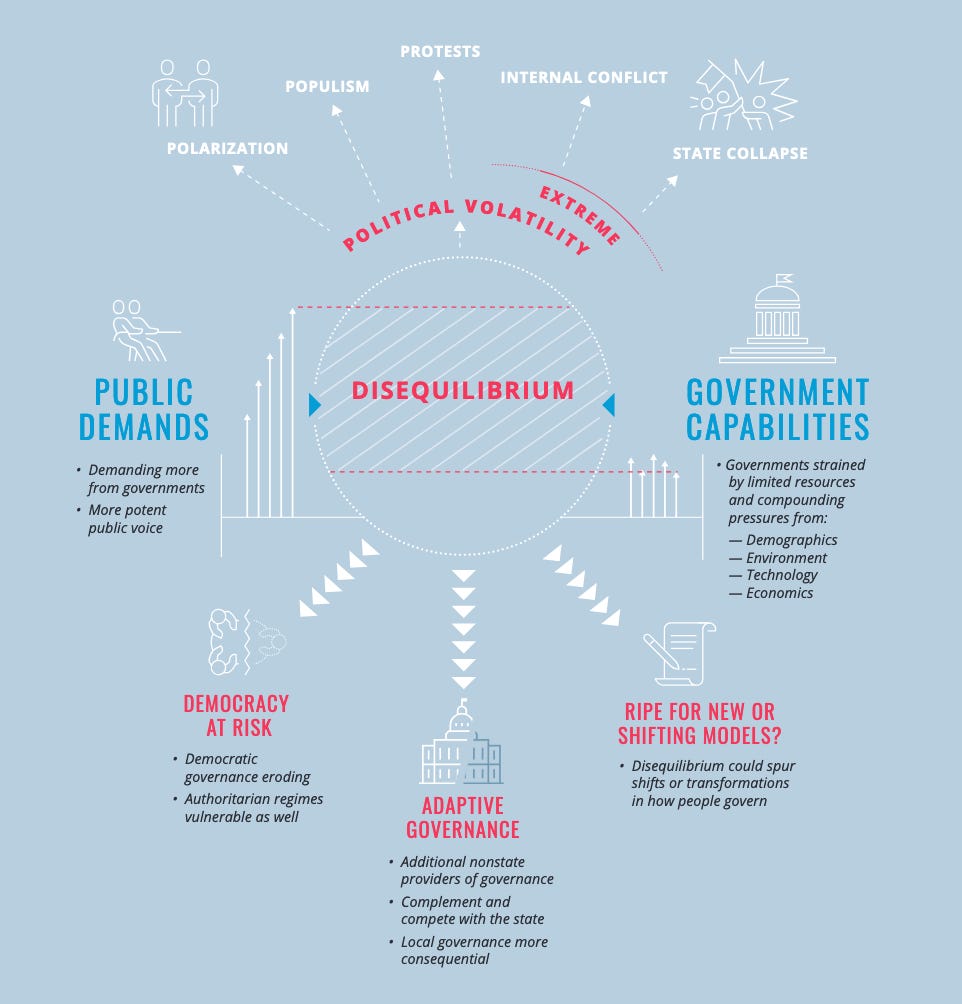“The revolutionary pole of group fantasy becomes visible, on the contrary, in the power to experience institutions as mortal, to destroy them or change them according to the articulations of desire and the social field, by making the death instinct into a veritable institutional creativity. For this is precisely the criterion–at least the formal criterion–that distinguishes the revolutionary institution from the enormous inertia which the law communicated to institutions in an established order.”
Gilles Deleuze and Félix Guattari, Anti-Oedipus

A comrade told me recently how profoundly they’d been transformed by their involvement in radical politics. Their current commitment to community organizing, radical analysis, and collective resistance was so strong, they said, that it was not tempered in the slightest by their simultaneous intellectual understanding that we weren’t actually going to win. That is to say, we can fight to stop evictions despite knowing we’ll never stop evictions in general, we can oppose American imperialism despite understanding the American empire might just be here to stay, and we can recruit revolutionaries without deluding ourselves that we’ll make The Revolution. They asked me how I dealt with that tension and I told them that frankly…
I don’t deal with that tension because I don’t accept the premise. I don’t think imperialism is eternal or revolution is impossible. Let me be clear that I’m not under any illusions about the speed of social change or the nature and power of our opponents. I don’t think defeating racial capitalism is guaranteed by the dynamics of history or the will of God or the force of our determination and grit. But as Assata Shakur wrote:
“It is our duty to fight for our freedom. It is our duty to win. We must love each other and support each other. We have nothing to lose but our chains.”
The duty to win implies the duty to believe that winning is possible. Not as an article of faith but as a concrete possibility that nourishes us today. It is the duty of the revolutionary to believe that revolution is possible just as it is the duty of the sports fan to believe that this could finally be the year that your team takes home the trophy. That obviously doesn’t mean you’re required to wipe out your life savings betting on each game. But if you don’t feel in your bones that there’s actually a chance the team you’re going crazy for could bring it all home, you aren’t a fan. You’re kind of a weirdo.
Similarly, if we’re carrying on about Revolution or Abolition without truly feeling it as a real living possibility within our lifetimes, we’re actually doing a huge disservice. Not to The Cause or The People but to ourselves and the actual flesh and blood people around us because we’re putting a target on our backs and theirs for no reason.
For instance:
-
A mutual aid project that isn’t oriented towards eventual revolutionary change isn’t prefiguring post-capitalism or about ensuring our communities’ survival pending revolution. It’s just poorly funded, marginally accountable charity.
-
A radical political education study group that isn’t oriented towards eventual revolutionary change is one whose members cannot truly believe radical politics will really ever matter. It’s just a niche hobbyist book club like any other, except that it’s one that by virtue of its subject matter might set up its participants for police surveillance.
-
A grassroots group using leftist rhetoric without an orientation towards eventual revolutionary change can’t hope to surpass the quasi-reformist campaigns it engages in today. It’s just a DIY version of a civil society nonprofit, albeit one that doesn’t pay its employees.
Purporting to believe in abolition or liberation or communism or anarchy or decolonization or whatever the hell you wanna call it while actually believing it’s never gonna happen doesn’t just make you a liar. It makes you a reformist, and not just any reformist. It makes you a particularly ineffective and incompetent one.
None of that means that real transformative change is inevitable. Leftists have decided that they’re witnessing the very final death throes of global capitalism, definitive proof that the system is teetering on the brink of imminent collapse, for well over a century and a half now. I am, tragically, neither a prophet or a wizard, so am professionally ill-equipped to make sweeping predictions about the future.
But I think that there’s strong reasons to suspect that a belief in the invincibility of American capitalism is less a hardheaded, pragmatic assessment of present conditions than an ideological capitulation.
For example:
-
US residents are taught that they live in the “world’s oldest democracy.” For some reason, we’ve managed to convince ourselves that “world’s oldest” means “probably eternal,” though only where capitalist democracies are concerned. The owner of the world’s oldest Shih Tzu should not cancel their dog’s upcoming vet appointment on the understanding that at this point, Fluffy’s probably conquered death itself. In any other context, “world’s oldest” means “most likely to expire next.”
And outside of the US context, regime changes happen with great frequency. About half the world started the twentieth century as colonies of now-extinct empires, became nominally Marxist-Leninist party-states through revolutions, war, or coup d’etats, and transformed again into capitalist multi-party states by the century’s close. Regime changes are neither bloodless nor trivial, but the idea that they are so uncommon that we should not prepare for them is a particularly American delusion – one that the US right, at least, is increasingly abandoning.
-
When protesters burned Minneapolis’s Third Precinct a mere three days after George Floyd’s 2020 murder, they had the support of 54% of Americans. A greater percentage of Americans supported a police station getting incinerated than had supported any presidential candidate in the preceding 36 years. In the following weeks, there was widespread support behind swathes of cities across the US becoming effectively unpoliceable and ungovernable. We all know that the George Floyd Rebellion was eventually co-opted and repressed, but the capitalist class didn’t give away $50 billion in post-BLM “racial justice” donations because they suddenly developed a conscience. They did it out of a fear of a burgeoning general crisis of legitimacy in the US regime and the system of racial capitalism it enforces. Protesters may not have thought they were going to win; the ruling class, however, was certainly afraid of that very possibility.
-
The stodgy Council on Foreign Relations is advising the United States to prepare for a “high risk of upheaval within its own borders” around the fall presidential election. The federal National Intelligence Council’s 2021 report, Global Trends 2040: A More Contested World, predicts “greater contestation at every level” in the coming decades as global and national institutions struggle to adapt to demographic, economic, technological, and environmental shocks. “The combination of widespread public discontent and major crises or shocks could create conditions,” write the authors, “that are ripe for significant shifts or transformations in the models, ideologies, or ways of governing.” The NIC forecasts five potential scenarios for the world of 2040, the last comprising “bottom-up, revolutionary change on the heels of devastating global environmental crises.” Foreign Policy describes the United States as “a textbook case of a country on the brink of civil conflict,” warning political elites that “the country possesses no effective way for processing or mollifying or even slowing political violence.” The author’s conclusion? “The American experiment is coming to an end.”
I am a partisan of what Selma James called the perspective of winning. Everyone from Republican mega-donors to World Bank technocrats to intelligence agency spooks is taking the end of the American system as a very serious possibility. If we’re promoting revolutionary change, we need to take the possibility of victory seriously, as well.
You aren’t a revolutionary because you’ve read certain books or memorized certain slogans. You’re a revolutionary if revolution is your retirement plan. You’re a revolutionary if you can imagine that you or your peers or your children might live longer than the Chamber of Commerce and the Pentagon, the housing market and the local police department, payday loan businesses and State of the Union addresses. You’re a revolutionary if you take the possibility of revolution seriously, at least as seriously as the Council on Foreign Relations and Central Intelligence Agency do, and live your life accordingly. Our duty is to win, to believe we can win, to truly desire to win and to build the relationships, alliances, and infrastructure necessary to do so. To manifest counter-hegemony. To prepare for the struggles to come.
“Another world is not only possible, she is on her way,” said Arundhati Roy, referring to the slogan of the World Social Forum, “On a quiet day, I can hear her breathing.” The struggle is to hasten her arrival, to amplify her breaths along the way, to sustain as many of us as possible until the day she steps over the threshold of empire.
This post has been syndicated from In Struggle, where it was published under this address.




